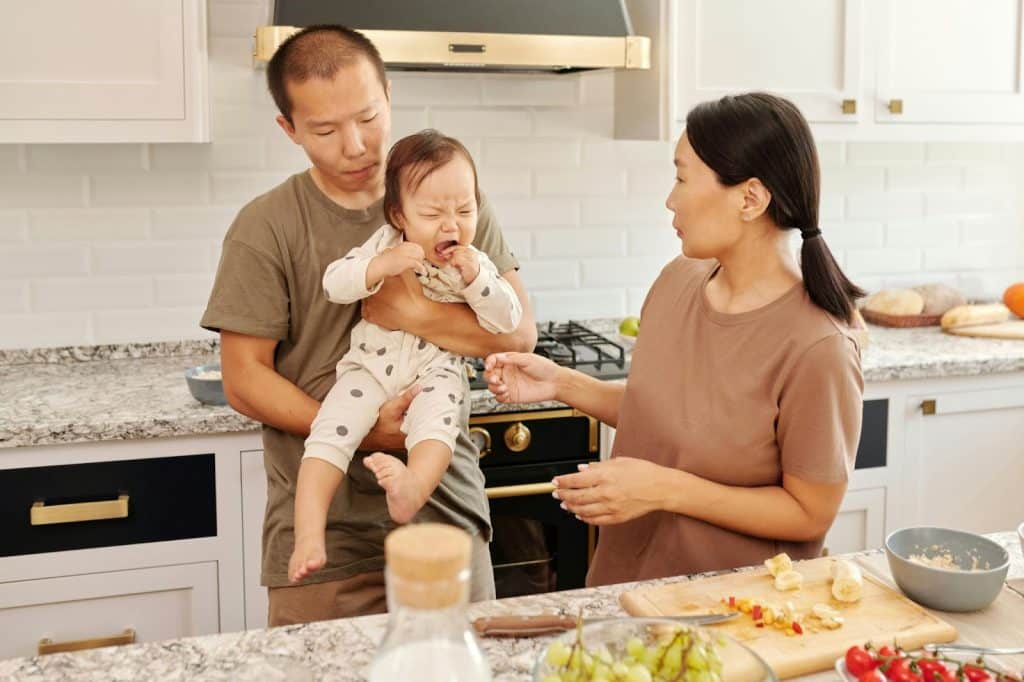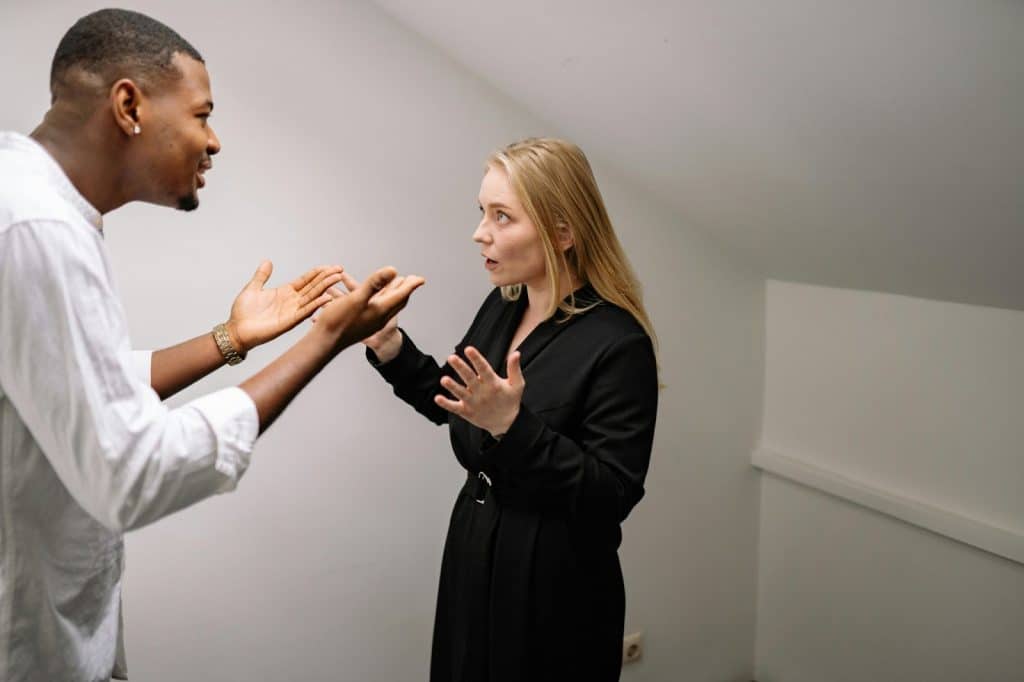
Marriage works best when both partners feel valued and respected. Yet, subtle habits and unspoken dynamics can quietly tip the balance, leaving one partner feeling overlooked. Many of these behaviors are not intentional but stem from comfort, routine, or assumptions about roles. When they go unchecked, they create the impression that the marriage is unequal. Husbands often notice these imbalances but may not voice them openly. Here are 20 secrets that can leave marriages feeling one-sided, and why recognizing them matters.
Setting Household Standards Only She Approves Of

Chores and routines are a natural part of shared life. But when tasks must always be done to her exact standards, it undermines his contributions. This sends the message that his effort is never quite good enough. Over time, this discourages participation and creates resentment. Equality means valuing effort, not perfection. Shared standards should reflect both partners’ input.
Taking Control of Social Plans by Default

Social calendars often tilt toward one partner’s preferences. When her schedule, friends, or outings consistently take priority, it leaves him sidelined. This creates an imbalance that suggests his preferences matter less. Over time, this builds frustration and quiet withdrawal. Balance means both partners having equal say in how time is spent socially. Respect is shown by valuing his circle as much as hers.
Prioritizing Her Family Over His

Extended families can be a source of joy, but favoring one side consistently tips the scales. When her family becomes the default priority, his side feels overlooked. Over time, this creates distance not just with him but with his relatives as well. Equality in marriage extends to family bonds. Respect means valuing both sides equally, not allowing one to dominate. Balance strengthens unity.
Making Major Purchases Without Discussion

Money is one of the most sensitive areas in marriage. When significant purchases are made without consultation, it sends the message that financial decisions aren’t shared. Over time, this can create resentment and mistrust. Equality requires transparency and teamwork in spending. Both voices matter when shaping the financial picture. Marriage thrives on financial partnership, not unilateral control.
Using Affection Only on Her Terms

Physical closeness is a powerful connector in marriage. But when affection is given only under her conditions, it becomes a form of control. Over time, this dynamic makes intimacy feel transactional rather than mutual. Respect means offering affection freely and consistently. Husbands often feel diminished when closeness is conditional. Love thrives when it isn’t tied to leverage.
Keeping Score of Sacrifices Made

Sacrifices are part of every marriage, but constantly highlighting them shifts balance. When one partner reminds the other of what they’ve given up, it creates a debt-like dynamic. This erodes gratitude and builds resentment. Over time, the marriage feels more like a competition than a partnership. Equality means sacrifices are made with love, not as bargaining chips. Mutual giving sustains connection.
Expecting Him to Handle Stress Silently

Men often feel pressure to carry stress without showing vulnerability. When wives assume this silence means strength, it creates distance. Over time, this expectation isolates husbands and undermines connection. Equality means both partners can share burdens openly. Respect grows when space is made for vulnerability. Marriage is stronger when neither partner is left alone in struggle.
Minimizing His Achievements

Celebrating successes is vital for respect. When his achievements are dismissed or downplayed, it sends the message that they don’t matter. Over time, this diminishes confidence and closeness. Equality requires recognizing both partners’ accomplishments. Respect grows when effort is acknowledged, no matter how small. Celebrating together strengthens unity and admiration.
Expecting Constant Emotional Availability Without Reciprocity

Emotional support is crucial, but it should flow both ways. When wives rely heavily on husbands for comfort without offering the same in return, imbalance grows. Over time, this leaves men feeling drained and unseen. Equality means both partners share the role of emotional support. Respect thrives when care is reciprocal, not one-sided. Emotional balance builds lasting stability.
Framing Arguments Around Feelings Only

Feelings deserve validation, but dismissing logic or compromise undermines fairness. When arguments are resolved solely on the basis of emotions, his perspective is overshadowed. Over time, this makes his input feel secondary. Equality requires blending emotion with reason. Respect grows when both are valued equally. Marriage thrives on balance, not dominance of one side.
Holding Past Mistakes as Leverage

Mistakes are inevitable, but using them as ammunition creates inequality. When past errors are repeatedly brought up, it keeps one partner in a defensive position. Over time, this damages trust and growth. Equality means forgiveness is genuine and mistakes aren’t weaponized. Respect grows when partners focus on progress, not history. Love cannot thrive in a cycle of blame.
Assuming Leadership in Parenting Without Discussion

Parenting works best when both partners contribute equally. When one assumes authority without input from the other, it creates imbalance. This sends the message that his opinions on parenting don’t matter. Over time, this damages not just the partnership but the children’s perception of equality. Respect grows when parenting decisions are collaborative. Shared leadership strengthens families.
Expecting Him to Shoulder All Financial Stress

Financial pressure is heavy when carried alone. When husbands are expected to be the sole safety net, it creates long-term imbalance. Over time, this burden erodes energy, trust, and connection. Equality requires shared responsibility, even if contributions look different. Respect thrives when both partners recognize financial stress as a team effort. Marriage is stronger when the load is shared.
Assuming His Hobbies Matter Less

Personal interests provide balance and fulfillment. When his hobbies are dismissed as trivial, it communicates disrespect. Over time, this erodes individuality and closeness. Equality means valuing each partner’s passions. Respect grows when hobbies are supported, not minimized. Personal fulfillment feeds into relational strength.
Controlling Free Time and Priorities

Time outside of obligations should be shared fairly. When weekends and holidays are consistently shaped by one partner’s preferences, imbalance grows. Husbands often feel sidelined when their needs for downtime or choice are ignored. Equality means both voices guide how free time is spent. Respect grows when compromise shapes shared time. Balance strengthens the bond.
Shaping Daily Routines to Her Comfort Zone

Daily life carries unspoken habits that often favor one partner. When routines always align with her comfort, he may feel his needs are overlooked. Over time, this creates resentment and silence. Equality requires flexibility and compromise in even the smallest routines. Respect thrives when both comfort zones are valued. Marriage grows stronger through shared adjustment.
Overriding His Opinions in Small Decisions

Even minor choices carry weight when one voice is ignored. When wives override small decisions, it signals that his input doesn’t matter. Over time, these moments add up to imbalance. Respect grows when small contributions are valued equally. Equality is built in everyday interactions. No voice should feel secondary.
Assuming Authority in Public Narratives

Stories shared in public shape how a couple is perceived. When wives consistently present themselves as the final authority, it diminishes his role. Over time, this damages confidence and creates resentment. Equality means public narratives reflect both partners fairly. Respect grows when both voices are represented. Marriage thrives on shared identity.
Expecting Agreement in Public at All Times

Unity is important, but forced agreement creates silence. When husbands are expected never to disagree in public, it suppresses authenticity. Over time, this builds resentment beneath the surface. Respect grows when couples can disagree respectfully without undermining one another. Authenticity matters more than appearances. Marriage thrives on honest partnership.
Believing Compromise Means Him Adjusting

Compromise requires flexibility from both partners. When it consistently means he adjusts, balance is lost. Over time, this creates silent frustration and distance. Equality means compromise is mutual. Respect grows when sacrifices are shared fairly. True balance requires effort from both sides.
Conclusion

Inequality in marriage doesn’t always stem from dramatic events. More often, it arises from subtle habits and unspoken dynamics that shift balance over time. These 20 secrets show how small choices, when repeated, can make marriages feel unfair. But awareness brings the chance for change. By valuing both partners’ voices, efforts, and needs, equality can be restored. A balanced marriage isn’t about keeping score—it’s about building respect, teamwork, and trust every day.






Ask Me Anything